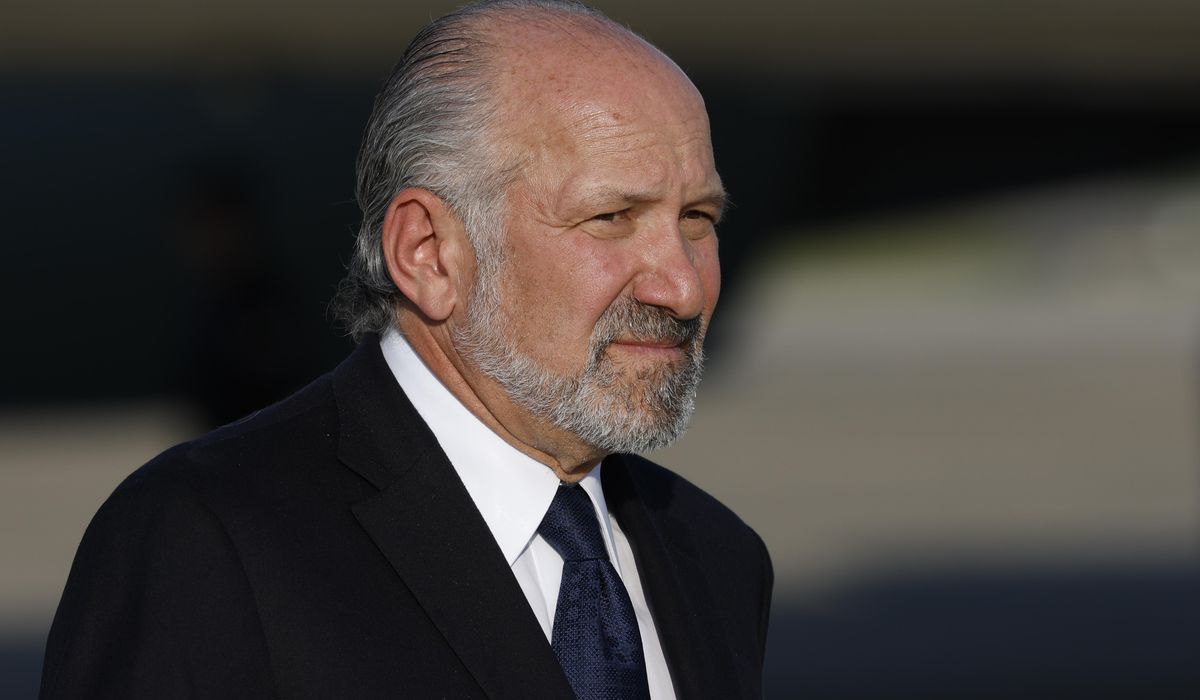


The Trump administration is having a lively debate about whether the government should take a stake in companies that serve as top defense contractors.
Commerce Secretary Howard Lutnick said it could be the next phase of President Trump’s novel approach of taking public stakes in private-sector companies.
“There’s a monstrous discussion about defense,” Mr. Lutnick said on CNBC.
He said defense contractor Lockheed Martin, for instance, is “basically an arm of the U.S. government.”
“What’s the economics of that? I’m going to leave that to my secretary of defense and the deputy secretary of defense,” Mr. Lutnick said. “These guys are on it, and they’re thinking about it. But I tell you what. There’s a lot of talking that needs to be had about how do we finance our munitions acquisitions?”
The comments will fuel a larger political debate about whether Mr. Trump is being a shrewd steward of U.S. taxpayer money or delving too far into the private economy.
The president said Friday that Intel, a massive but struggling chip manufacturer, agreed to give the U.S. government a 10% equity stake in the company in return for the funding promised under President Biden’s 2022 law to bolster America’s semiconductor industry.
“Actually, it is the American way,” Mr. Trump said at a Cabinet meeting on Tuesday. “It builds up our balance sheet. Our country is becoming very rich again.”
The federal government has previously helped bail out companies in distress, fearing wider shocks to the economy. But investors and some lawmakers say Mr. Trump’s moves to take a stake in chipmaker Intel and mining and steel companies are a groundbreaking — and perhaps risky — step.
Some Republicans and high-profile investors said government shares in private companies were a bad trend and akin to socialism.
Mr. Trump says he is doing good business for American taxpayers and remains a champion for the private sector.
“Government jobs are down, and private jobs are way up,” he said Tuesday. “And these are the jobs that make money, create a better life.”
Mr. Trump is implementing an aggressive economic agenda in the first year of his second term. He has pushed for sweeping tax cuts and deregulation and imposed hefty, sweeping tariffs on imports.
The president said his goal is to make the U.S. government run smarter, and that requires novel tactics such as widespread use of tariffs.
He issued blanket levies on dozens of trading partners and new tariffs on autos, steel and aluminum. He is probing whether tariffs on imported furniture are warranted, saying it will boost domestic manufacturing.
Mr. Trump said “artists” in North Carolina and other states with a history of furniture-making should teach their kids and grandkids how to make furniture.
“It’ll be done pretty quickly,” Mr. Trump said.
Also Tuesday, Mr. Trump warned countries in Europe and elsewhere that he will impose stiffer levies on countries that impose digital services taxes, which are essentially levies on the gross revenues of U.S. tech companies that operate in a certain country.
“I put all Countries with Digital Taxes, Legislation, Rules, or Regulations, on notice that unless these discriminatory actions are removed, I, as President of the United States, will impose substantial additional Tariffs on that Country’s Exports to the U.S.A., and institute Export restrictions on our Highly Protected Technology and Chips,” Mr. Trump wrote on Truth Social.
The European Union, which is finalizing a trade deal with the U.S., hit back at Mr. Trump.
“It’s the sovereign right of the EU and its member states to regulate our economic activities on our territory that are consistent with our democratic values,” European Commission spokeswoman Paula Pinho told reporters in Brussels.
• Tom Howell Jr. can be reached at thowell@washingtontimes.com.
